#Vienna Symphony Orchestra
Text
#paul archibald#classical music#rthk radio 3#music#london symphony orchestra#vienna philharmonic orchestra#composers
0 notes
Text
Beethoven - Symphony No. 5
1808
The Symphony No. 5 in C minor, Op. 67, also known as the Fate Symphony, is a symphony composed by Ludwig van Beethoven between 1804 and 1808. It is one of the best-known compositions in classical music and one of the most frequently played symphonies, and it is widely considered one of the cornerstones of western music. First performed in Vienna's Theater an der Wien in 1808, the work achieved its prodigious reputation soon afterward. E. T. A. Hoffmann described the symphony as "one of the most important works of the time". As is typical of symphonies during the Classical period, Beethoven's Fifth Symphony has four movements. It begins with a distinctive four-note "short-short-short-long" motif, often characterized as "fate knocking at the door", the Schicksals-Motiv (fate motif). The symphony, and the four-note opening motif in particular, are known worldwide, with the motif appearing frequently in popular culture, from disco versions to rock and roll covers, to uses in film and television.
The Fifth Symphony had a long development process, as Beethoven worked out the musical ideas for the work. The first "sketches" date from 1804 following the completion of the Third Symphony. It finally premiered in 22 December 1808 at a mammoth concert at the Theater an der Wien in Vienna consisting entirely of Beethoven premieres, and directed by Beethoven himself on the conductor's podium. The concert lasted for more than four hours. The two symphonies appeared on the programme in reverse order: the Sixth was played first, and the Fifth appeared in the second half.
There was little critical response to the premiere performance, which took place under adverse conditions. The orchestra did not play well - with only one rehearsal before the concert - and at one point, following a mistake by one of the performers in the Choral Fantasy, Beethoven had to stop the music and start again. The auditorium was extremely cold and the audience was exhausted by the length of the programme. However, a year and a half later, publication of the score resulted in a rapturous unsigned review (actually by music critic E. T. A. Hoffmann) in the Allgemeine musikalische Zeitung. Apart from the extravagant praise, Hoffmann devoted by far the largest part of his review to a detailed analysis of the symphony, in order to show his readers the devices Beethoven used to arouse particular affects in the listener.
Beethoven was in his mid-thirties during this time; his personal life was troubled by increasing deafness. In the world at large, the period was marked by the Napoleonic Wars, political turmoil in Austria, and the occupation of Vienna by Napoleon's troops in 1805. The symphony was written at his lodgings at the Pasqualati House in Vienna.
Symphony No. 5 received a total of 94,6% yes votes!
youtube
#finished#high votes#high yes#high reblog#low no#1800s#beethoven#instrumental#o1#o1 sweep#lo2#lo4#popular
1K notes
·
View notes
Photo
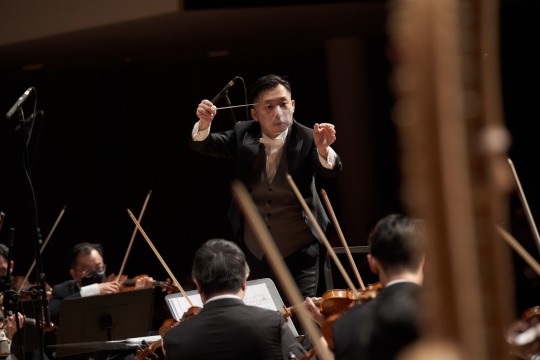
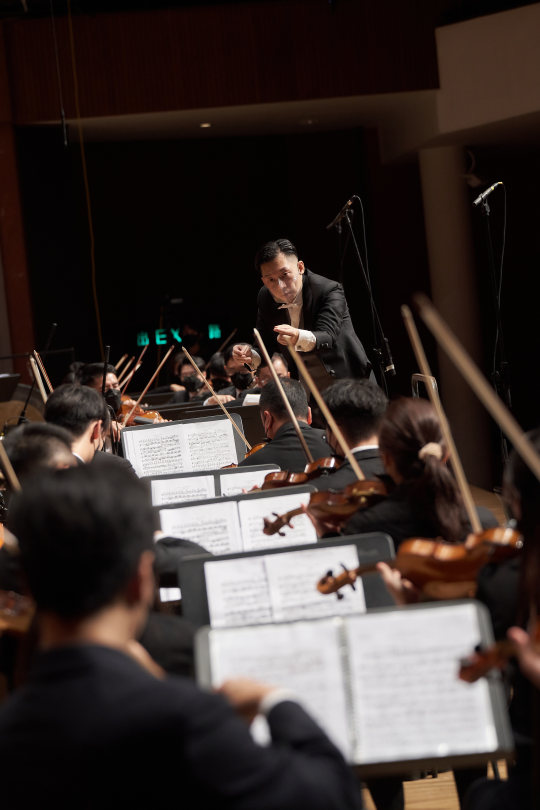

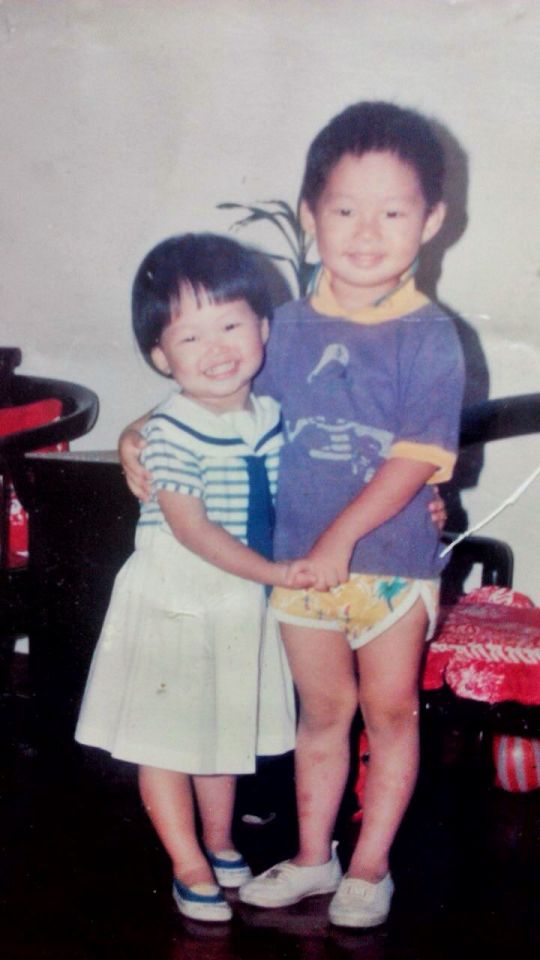



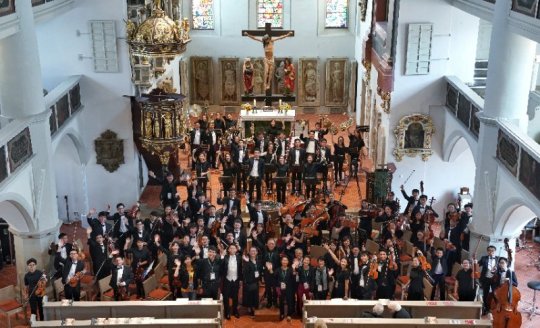
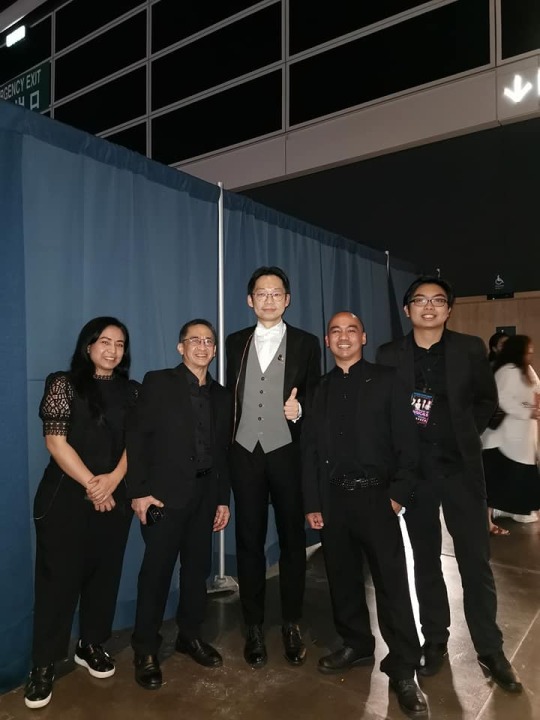
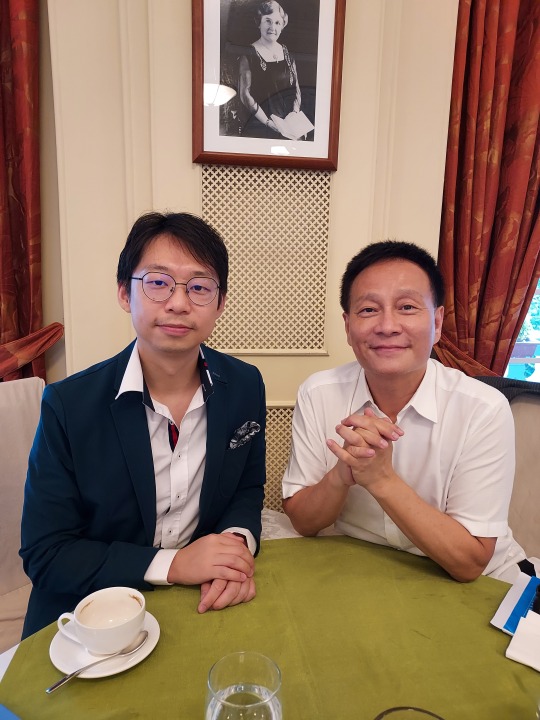
Music Is Never Just Music. It Is Bound Up With A Heart-to-heart Infiltration Between Music And A Man/Woman―The Well-liked ‘Slashie’ Music Conductor Stephen Lam(林屴汧)’s Comments On The Missing Part Of Music Education In Hong Kong
The world trend of ‘fusion’ can be fascinating. Taking different philosophies, rationales, cultures and styles and putting them together, yet mixing without absorption, create uniqueness and surprise. Many music fusion projects sadly fail simply because artists do not really understand the music of the other side and just conscript deviating musicians or compose awkward pieces to play discordant backdrops to their acts.
There is nothing new under the sun but can we try to turn the sun upside down? The popular and young orchestra conductor Stephen Lam(林屴汧), always treating people with great deference, laughed, “Okay, music can be a fusion. Let us walk into the sun, fly to the moon and carry ourselves to the stars on a music journey!”
I laughed too, “Can we?” Stephen replied, “Not only eyes can reflect the truth. Our music souls can also reflect the truth of mixed feelings. Music, of human and cultural differences, is a wonderful vehicle. I call it a ‘space shift’. Music conveys our imagination from one place to another. Different people have different emotional destinations and associations.” I said, “When I listened to Autumn Song of Tchaikovsky, I felt like being on Lamma Island with my old classmates. How about you?” Stephen smiled, “My ‘space shift’ for that piece of music is that I suddenly walked on a path in Beethovengang in Vienna. Beethoven once lived there when he discovered that he, a great musician, was about to become deaf.”
Born in Hong Kong, Stephen Lam was recently selected by the renowned conductor Riccardo Muti to participate in the opera production of his Italian Opera Academy. Stephen is currently the Artistic Director and Principal Conductor of Ponte Orchestra & Singers, as well as the Associate Conductor of the Macao Youth Symphony Orchestra. He has worked with orchestras around the world, including the Vienna Radio Orchestra and St. Petersburg Chamber Philharmonic etc. Stephen is placid but responsive reply is his forte.
Stephen said, “Music creates forest out of rocks. I want to inspire toddlers and youngsters with music.” He is a dedicated music educator and ardent advocate of community outreach. His collaborations with young musicians have been widely praised. He is currently the lecturer and conductor of United International College between Beijing Normal University-Hong Kong Baptist University, as well as regular guest conductor in Sichuan Music Conservatory.
Stephen continued, “When I was a boy, I studied in St. Paul’s College. I was active in music. I took part in music events in and out of Hong Kong. Idealism often lost to pragmatism when it came to selecting subjects in university. In the 2000s, I obtained a bachelor’s degree of Environmental Science from the Chinese University of Hong Kong, and a Master of Arts from the University of Hong Kong. After that, I seriously challenged myself: there would be no dream in my life without action to make it become reality. So, I packed my things and left Hong Kong for Vienna. I studied conducting at the prestigious University for Music and Performing Arts Vienna, where I was one of the last students of Uros Lajovic, Ordner Edwin, and Konrad Leitner. I also worked in music events there. I loved Hong Kong and wanted to do something for it. In 2017, I returned to my city and pursued a music career!”
I asked, “How do you find the music education in Hong Kong?” He gave it a thought, “The approach at the moment is not bad but not good enough. We give a lot of information about music to kids and ask them to sing, practise music and go to concerts. Do we really teach them how to appreciate music and I mean, how to go beyond knowledge and experience; and connect the ‘heart’ of a kid with the ‘heart’ of a music piece? In other words, we should teach a kid how to emotionally respond to and interact with the music with his own feelings and stories. The other problem is that parents do not really want their kids to enjoy music or make music a soulful refuge from the life. For them, music is just a means to get a certificate so that the kid can go to a good school.” I lamented, “Teachers may think such an approach for students is a burdensome duty and parents may think a good future is more discernible than the spiritual wellness of a kid.”
I switched to a new topic, “Any advice for those who wish to choose music as a career?” Stephen threw his hands in the air, “Ha! Receive formal music training in your university days or as early as possible! There are many people who practise music in other industries like pop music in the entertainment world. Trust me! Western classical music or traditional Chinese music tutoring will give them the solid and rich foundation on which their music career can be built. The complicated but necessary music education will let them be able to combine sounds to produce beauty of form, harmony and emotion well for the long term. Inspirations will not easily dry up!” I nodded, “I am glad to see more pop singers like Gin Lee(李幸倪) & Gareth T(湯令山) who had serious music training become popular and hot. They bring new thoughts and strength to the music industry.”
To succeed in any creative career, one must possess the importance of a solid foundation in the intricate basics of constructing and expressing skills.
I asked Stephen, “Make a wish!” He winked, “Hong Kong will be a music centre for 'East meets West’ and I am part of it. There have been a lot of oriental music embodying the ingredients of western music. I want to contribute more the other way round especially when I can master German and Italian language.”
‘Flower by flower a garden grows’. Some do music for self-esteem. Stephen Lam is determined to be rather a river that feeds thousands of flowers. He pursues multiple music careers including education in lieu of simply holding a traditional full-time job of an orchestra conductor. He said, “Every day is different. Music for every life is different too.”
MLee
Chinese Version 中文版: https://www.patreon.com/posts/zhi-shou-ke-re-75006967?utm_medium=clipboard_copy&utm_source=copyLink&utm_campaign=postshare_creator&utm_content=join_link
Stephen Lam in Concert https://youtu.be/l-zSh46TQVU Acknowledgement – Stephen Lam
Shirley Kwan Song – “Late Night Harbour” https://youtu.be/y6Jg4Z1I8GI Acknowledgement-沿途有你2
Tchaikovsky - Autumn Song https://youtu.be/Aq7TNv7Pbm8 Acknowledgement-Pianushko
Bobby Chen Song – “Keep the Sadness to yourself” https://youtu.be/7f6305MkDsI Acknowledgement – ROCK RECORDS
The Peony Pavilion https://youtu.be/9IScrauecgk Acknowledgement-xiyue1113
Stephen Lam interview https://youtu.be/mzQtTG8iuyA Acknowledgement-time flies 生涯規劃
#Gin Lee李幸倪#Gareth T湯令山#Beethoven#Tchaikovsky#Uros Lajovic#Ordner Edwin#Konrad Leitner#Riccardo Muti#Autumn Song#Beethovengang#St. Paul’s College#Ponte Orchestra & Singers#Macao Youth Symphony Orchestra#Italian Opera Academy#Vienna Radio Orchestra#St. Petersburg Chamber Philharmonic#United International College#Beijing Normal University#Sichuan Music Conservatory#University for Music and Performing Arts Vienna
1 note
·
View note
Text
The Lark Ascending: A Chaconne Story (Agatha Harkness x Reader)
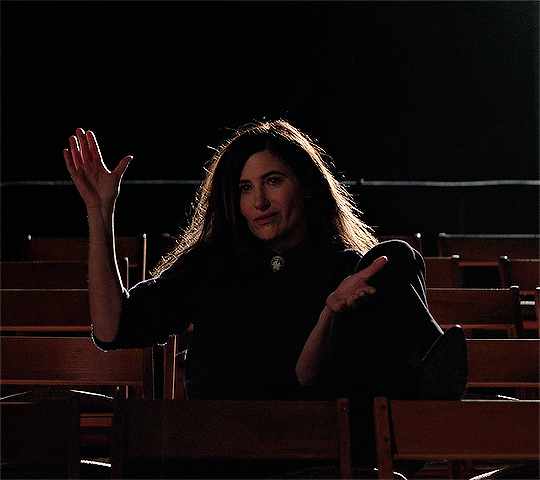
Summary: Five years after leaving your heart in New York to chase your dreams in Vienna, you're finally a rising star in the classical music world. After scoring your biggest gig yet- a soloist job for a summer concert series in LA- you discover that the past isn’t as distant as you’d thought.
Word Count: 5.7k
A/N: Hello friends, welcome to the Chaconne sequel, The Lark Ascending! This story is very near and dear to my heart and I’m so excited to be posting it. The inspiration for this fic is from one of my favorite pieces of the same name, The Lark Ascending. Thank you so much for reading, and I hope you enjoy it. Please feel free to let me know what you think!
Being a musician was all about sacrifice; you had to be willing to get to the top by any means necessary. You couldn’t just give it your all, it had to be more than that. But what happens when that wasn’t enough? What happens when you have it all just within reach, but no matter how hard you try you can’t quite get there? Those were the questions you had asked yourself when you first moved to Vienna. It seemed like no matter what you tried, how many hours you practiced, it wasn’t right. There was something missing. You did everything you should have, you moved to Vienna (although that wasn’t entirely your idea to begin with), you performed night after night with your blood, sweat, and tears, all while healing a broken heart.
It felt like you had all of the pieces to the puzzle in front of you, but they didn’t fit together. Or rather, you didn’t fit. There was something missing, and no amount of practicing could fix that. There was a small voice in the back of your mind whispering that there was a reason you didn’t make it into the Manhattan Symphony. Agatha would always say how much progress you were making, how much potential you had, that there was promise, but you wondered just how true that was; how much of it she really meant. You had been doing a lot of thinking on your relationship with Agatha lately.
The first few months after you moved to Vienna, you couldn’t even say her name without crying. There were reminders of her everywhere you turned. The coffee shop near your apartment, the rehearsal hall where you spent most of your time, every park you strolled through. You’d stumble upon small things, like a review for a new play, or interesting theories on post-modern music, and subconsciously want to share them with her. A beautiful sunny day, the flowers blooming in the ground, the wind whistling in the distance, the way the dew sparkled on the grass after a thunderstorm, everything was Agatha. You knew they called Vienna “The City of Dreams”, but you never anticipated all of your fantasies to revolve around the same woman. How were you supposed to get closure when she was thousands of miles away?
Your solace came, unsurprisingly, in the form of music. Vienna was the birthplace of some of classical music’s great forefathers, and there was inspiration all around you. Performing with Natasha and her chamber orchestra was like a breath of fresh air, and with every performance you slowly found yourself again. It wasn’t entirely true when they said time heals all wounds, because you weren’t sure you’d ever heal from the scar of leaving Agatha, but with every month that passed you found it hurt less and less. You often thought you would always love her, but this was for the best, you knew it was.
Eventually, it felt like everything was falling into place. Performing with a prestigious group that featured world renowned soloists like Wanda Maximoff meant you were able to make the right connections. You worked harder than you ever thought possible, and channeled your grief into your music to push you forward. It paid off in the end, and with Natasha and Wanda’s help you eventually entered a rising soloist contest.
Getting over your fears of inadequacy was another story. You knew that the one thing that was missing was your ability to believe that you were good enough; that you had always been good enough. No amount of practicing could convince you of that either, it had to come within yourself.
In the days leading up to the competition, you had a breakdown in front of Wanda that changed the way you saw yourself.
You set your violin down on the piano, ignoring Wanda’s concerned glance in your direction. “I think I need to drop out of this competition. I’m nowhere near ready.”
Wanda frowned, looking over the sheet music you had handed her earlier. “What are you talking about? You have everything memorized. You sound really good.”
“I don’t feel ready,” you argued, staring at the floor, trying to ignore the tightening of your chest at the thought of competing that weekend.
“No one ever feels ready for these sorts of things,” Wanda pointed out, and you knew she was trying to help, but you weren’t in the mood to hear it.
“I’ve never had the best luck with these sorts of things,” you reminded her. “I think I need to accept that this kind of dream isn’t feasible for me.”
“Why do you keep getting in your own way?” Wanda questioned, moving the sheet music to the side, her tone curious.
“I’m not getting in my own way,” you politely informed her. “I’m being realistic.”
“Nothing about this, about what we do is realistic,” Wanda corrected you, standing up from her seat. “I never thought I’d make it as a soloist, but I had to believe in myself enough to try. If you can’t even give yourself that, then you’re right; this isn’t feasible for you.”
Her words sat with you for a moment, and as you took it in, you felt the tightening in your chest begin to break until you could breathe again. She was right, you knew it deep down. As silly as it sounded, you had to give yourself a chance.
That ended up being the first competition you ever won, much to your surprise and Wanda’s delight.
Things began to look up after that. You slowly entered more competitions, and eventually you made enough of a name for yourself to begin soloing with various orchestras. It was nothing you could have ever imagined in your wildest dreams, but it was real. You did it. In spite of the heartache and pain, you did it all.
The past year proved to be your busiest yet. You had been booked solid with performances across the U.S. with a wide variety of orchestras, and your schedule wasn’t slowing down just yet. You would be spending your summer in Los Angeles, and you were still in disbelief.
If you had told yourself five years ago that you would be the featured artist in residence of the Los Angeles Symphony’s summer season, you would have thought it was a joke. Being the premiere performing symphony on the entire west coast, they had a stellar reputation and drew in huge crowds. Stephen Strange was a legendary conductor who you had always dreamed of getting to work with. It almost felt too good to be true.
You made it to the symphony center a little earlier than you planned, but with the unpredictability of LA traffic you didn’t want to risk being late. All that was on your agenda for the day was a meeting with the CFO of the board, Tony Stark, and a short rehearsal. But, you were hoping to get a quick peak of the concert hall while it was still empty. There weren't many people around this early in the day, but you had little trouble navigating yourself around until you found the backstage door.
The concert hall was pitch black, and you fumbled with the switches backstage before managing to flip on a single stage light. You wouldn’t need anything more than that, surely. Stepping on the stage you looked out at the vast concert hall, which seemed to hold hundreds of empty seats, and you pictured what it would be like to step out to thunderous applause. None of your previous experiences performing as a soloist had ever been for an audience of this size, and you silently came to the realization that the crowd at the Hollywood Bowl would be even larger. A familiar tingle of nerves coursed through your system as tiny thoughts of doubt twirled around your brain. Were you ready for this?
Absentmindedly tapping your fingers against the music stand at the podium, your eyes swept across the room. A quick glance at the schedule confirmed that no one from the orchestra would be here until later in the evening, so you’d have the place entirely to yourself. Taking a deep breath, you unpacked your violin and began to tune, taking note of how the sound bounced all around the walls, and gradually felt yourself relax. It was funny, you mused as you lowered your violin, how easy it was for you to discredit how much you had accomplished over the past few years. You weren’t just some conductor’s assistant anymore, you were a professional violinist, and a good one at that. It was unclear if your hesitation to accept your success came from the fear of being considered overly cocky, or if it derived from years of low self esteem and an inferiority complex.
Taking another long, calming breath, you swept those thoughts aside. Raising your violin, you rolled your shoulders back, turning so you were facing the front of the hall. It would be foolish to play the entire piece hours before rehearsal, as you would be wasting energy that you would desperately need. Performing was a lot like running a marathon, you couldn’t blow through everything you had in the first few miles and be left with nothing for the end. No, you needed to be intentional with every movement of your bow and shift of your fingers up and down the fingerboard.
The Lark Ascending was a majestic sixteen minute piece that was filled with swooping melodies as the violin sang higher and higher with every measure. Vaughan Williams was a composer during the late Romantic Era, crossing over into the Contemporary, and he had been inspired by a poem of the same name written by English author George Meredith. Vaughan Williams was able to create such stirring imagery with the notes on the page, that it was easy to get lost as you were playing and get transported to this dreamy, astral realm. Filled with a gorgeous blend of vivid colors and clouds, you felt like the lark Vaughan Williams was depicting, soaring through the clear skies.
The piece was filled with vulnerable cadences where you played without the orchestra’s accompaniment acting as a safety net in case you fell. You had to be completely sure of yourself, a hint of hesitation of your fingers or incomplete bow changes would ruin this picturesque painting. Rolling your bow to the frog, you internalized what you wanted your first note to sound like, settling on working on your opening phrase. Placing your fingers on the string, you closed your eyes and began. Your introduction was a stunning cadenza, with the tempo gradually increasing as you began your opening runs, your fingers gliding across the strings.
There was freedom with the tempo, allowing you to take your time and savor each note, your vibrato ringing through the hall. As you climbed higher and higher into the stratosphere it almost felt like you were the lark, ascending into the open air. Performing like this had unlocked a new sense of freedom you always yearned for; the countless hours of practicing turned into an almost effortless sight to any audience. It was as natural as breathing, and each exhale you took matched the strokes of your bow. Nearing the end of the phrase, you tried a new stylistic technique as you shifted your fingers gradually down the fingerboard, making note to try it again later at rehearsal.
As your bow stopped moving you made a few other mental notes of where you could add more vibrato, or improve your dynamics, when all of the lights in the hall turned on, snapping you out of your inner thoughts. The abrupt sound of loud clapping is what startled you the most, as you thought no one else would be using the stage until tonight. You turned around to find the stage door was still ajar, just as you left it, but you noticed a figure lingering in the shadows, and you nearly jumped at the sight. The building was secure enough that you weren’t going to be murdered, right?
“Can I help you?” You asked as politely as possible, setting your violin in its case.
“I have to say, dear, you certainly know how to leave a girl wanting more,” A familiar voice rang out, amusement clear from their tone as they stepped into the light. “You must have had an excellent teacher.”
Agatha Harkness leaned against the door frame, hands folded across her chest. Her dark hair was splayed against her shoulders in their usual messy curls, and you were surprised to find her in more casual attire consisting of a pair of black jeans and a lightweight button-up sheer white shirt. She arched an eyebrow at your shocked expression
You felt your heart stop as you stared into a familiar pair of blue eyes. “Agatha?”
Her lips twisted upwards, smirking, a familiar glint in her eyes. “Surprised to see me?”
Time stood still as you were frozen in place, millions of thoughts dancing around your brain. You were unsure if it had been five seconds or five hours, all you could do was try to remember to breathe. Agatha was here, but how was she here? Were you imagining it? It wouldn’t have been the first time, as you’d lost track of the number of appearances she had made in your dreams over the years. They were all of slightly different variations, but would all end in the same heartbreaking fashion of reconciling with the conductor and feeling a sense of happiness you’d long forgotten…until you inevitably woke up alone.
Blinking, you took a timid step towards her, your hands uncomfortably folding behind your back. “Agatha, what are you doing here?”
Ignoring your question, she walked over to your violin case, and, despite your protests, she picked up your violin, examining it. “I see someone got a new instrument.” Gently turning it, you watched her trace the scroll, her fingers dancing around the pegs. “A shame, really, I was quite fond of your old one. But this is nice too, I suppose. What is it? Italian? German?“
“Swiss, actually,” you lightly corrected her, holding out your hands, signaling for her to hand it over.
As she disregarded your wishes for a second time, you felt a familiar pang of annoyance at how stubborn she could be. Picking up your bow, she raised your violin, setting the bow on the string, before releasing and producing a G-major chord. As the chord echoed throughout the hall you relished in the sound. Agatha had rarely used your violin before. She had always insisted that her talents remained with conducting and the piano, but you recalled a few memories of convincing her to play a scale or two on your violin.
You were normally extremely protective over your instrument, often refusing to allow anyone else to even hold her. However, you recollected, it had never been like that with Agatha. There had been some deep, unspoken level of trust that you had never felt with anyone else.
“Impressive,” Agatha remarked, appearing to admire the sound quality, before finally handing it back to you. Her hands briefly brushed against yours as you wrapped your hands around the neck of your violin, and it was as if you had been zapped by lightning.
But as quickly as the sensation overcame you, it was gone. Agatha retracted her hands, deep blue eyes boring into yours with the same intensity she always seemed to carry.
Clearing your throat, you broke eye contact, feeling the weight of her gaze still on you. “You never answered my question. What are you doing here?”
The conductor released a thoughtful hum, as you watched her move towards the edge of the stage. “Now is that any way to greet the Los Angeles Symphony’s guest conductor, dear?”
Guest conductor? Your face scrunched up, surprise coloring your features. None of your recent internet searches of the conductor revealed she would be in Los Angeles for any upcoming performances. Now, you weren’t exactly stalking Agatha, that would be creepy. You just liked to occasionally see what she was up to. That was normal, right?
“Tony never mentioned a guest conductor when I spoke with him earlier,” you pointed out, leaving out your internal ramblings as you were sure Agatha would get far too much pleasure from hearing you had looked her up.
“Well, it appears that Stephen contracted a rather nasty stomach bug, and I just happened to be in the area.” Agatha explained, as if it was the most obvious answer in the world.
Now, you weren’t claiming to be an expert geographer, but something in your gut told you that she was lying. “So you just happened to be in California when you live on the East Coast?”
“Something like that,” Agatha tossed out, teasing you ever so slightly, and you scoffed.
She had always been elusive; that had been part of her charm. You never entirely knew what to expect when you were dealing with Agatha Harkness, and that used to excite you. She often reminded you of a raging hurricane, with her occasional fits of anger and passion all mingling together like the waves crashing against the shore. There had been a gentler side to her, of course, located in the eye of the storm. That had been the Agatha you were most familiar with, underneath all of the sarcastic quips and horrible temper was the woman you had once fallen in love with.
Nothing about her had ever been direct, which nearly drove you mad. But the subtlety of how she offered her affection more than made up for it. Nearly every night she insisted on driving you home, and you had quickly learned she detested the subway. She had been horrified when you had revealed you almost never cooked, so she made a point to teach you her favorite recipes (while only gently mocking your lack of skill in the kitchen in the process). It was clear she hadn’t been used to expressing her emotions, but then again you had never been an expert in that field either. Still, she loved you in her own way, and deep down a small part of you knew she loved you enough to let you go all those years ago.
But standing here now, you couldn’t help but wonder what she was really doing here. Did she know you were set to premiere with the orchestra? There was a fleeting thought where you dared to wonder if she came here for you, but you knew that was too foolish to even imagine. It had been so long without any word from her, why would she come to you now? You had performed with a few other orchestras in the States over the past year, and there had been a few brief moments where you hoped she would show, but she never did.
She was looking pleased, far too pleased for your liking. A rather dark thought crossed your mind, and you shot her an incredulous look. “Oh my god, did you do something to Stephen?”
Agatha let out a loud cackle, the sound sending a shiver down your spine. “I’m a conductor, dear, not a homicidal witch. What exactly do you think I could have done, beat him up with my baton?”
That painted a rather interesting image in your head, but you frowned at her, unamused. “You’re not going to tell me what you’re doing here, are you?”
“You always were a fast learner, darling,” Agatha quietly remarked as she took a step towards you, the once familiar pet name sounding foreign on her tongue. “I must say, I was surprised to learn you had selected Vaughan Williams.”
“Why?” You questioned, noting how she slowly inched her way closer to you.
“I suppose I assumed you’d pick something with more flare. Tchaikovsky perhaps, or Sibelius.”
Shrugging, you vaguely called to mind one of the first things Agatha had ever said to you. “I don’t know, I guess I always preferred something more subdued, you know?”
You watched her eyes sparkle with a mischievous glint, and it was clear she knew what you were doing. “Something more subdued, hm? Not a fan of the dramatics?”
“I think that’s much more your genre of choice than mine,” You retorted, feeling the air in the room begin to thin as she circled you like a shark.
Agatha stepped in even closer, and her fingers reached up, playing with the loose strands of hair that fell around your shoulders. You felt your body react to her touch, a sensation you’d long forgotten. “You cut your hair,” she murmured, so low you could barely hear her.
“You haven’t seen me in over five years,” you pointed out, feeling a wave of nerves hit you over having her so close. “I’m sure my hair’s changed a lot since then.”
“It looked longer in Chicago,” she mused, still twirling the strands around, and you were stunned. Chicago? Your most recent performance was with the Chicago Philharmonic last month, and that would mean that…was she there?
“How would you know that?” You pressed, and her fingers ceased their movements, as you searched her eyes for a glimpse into what she was implying.
You could feel millions of unanswered questions dancing between the two of you, the tension thick in the air. Agatha’s hands abruptly dropped your hair as if she had been burned, and you briefly yearned for her touch again.
“My assistant showed me a recording of the performance on their phone,” Agatha explained, folding her hands against her chest. “Your stage presence certainly has improved, but you were late coming out of your cadenza.”
Ignoring the slight dig, your brain honed in on what she said prior to that. Her assistant. You couldn’t help but ask yourself if she had kept the same assistant since you left. A brief, but intrusive, thought made you wonder if the dynamic between Agatha and this new assistant was similar to the one you once shared. Did she call them the same terms of endearments she had bestowed upon you? Did she introduce them to her favorite old movies that you used to beg her to turn on? Did she go out of her way to fluster them, as she once took pleasure in doing to you?
You weren’t sure why it bothered you so much. It wasn’t as if you were together anymore, Agatha was free to do what she liked and to see who she pleased. You had a few short-lived, meaningless flings while living abroad, so it would be hypocritical to judge her. But, there was a voice screaming deep inside you, questioning how special your time together truly was if she could have replaced you so easily?
“Right, your assistant.” You tried your best to keep the bitterness from seeping through, but could practically taste the venom in your mouth.
Agatha raised her eyebrows, but refrained from commenting on your change in tone. Instead, she turned to walk down the stairs of the stage, leading to the aisle. “I only heard the last few bars of your cadenza, and it isn’t terrible, but it could certainly be better. Now, I don’t have my score on me, but it sounds like you’re losing too much momentum as you come down the fingerboard.” She sat a few rows back from the stage, crossing her legs together. “Could you take it again from your last run, and try to make your decrescendo last longer? We want to elongate these phrases to draw the audience in.”
There had been a time when you would have done anything Agatha had asked of you without question. Your daily practice sessions with the conductor had been grueling at times, as she was incredibly nitpicky, and had an impeccably well-trained ear. Any missed entrance or a note that was even just a hair flat she would pick up on. You had worked with a lot of gifted musicians in the past, but none of them could dream of coming close to Agatha Harkness. She wasn’t just a conductor, she possessed the rare ability to take the notes off the page and transform them into these brilliant, colorful works of art.
You used to live for her praise, and would often go out of your way to receive it. It had been your worst fear to disappoint her somehow, even if it meant sacrificing your own dreams to please her. But things were different now, you weren’t her assistant anymore. The burning desire to gain her approval still lingered somewhere within you, but it wasn’t as strong anymore. You knew that you would be okay without it, as you had to learn to live without her.
Giving her a pointed look, you decided to test the waters. “You do realize you’re not my boss anymore, right? I don’t have to just do whatever you say.”
Agatha looked momentarily stunned, and you could practically watch the gears turning in her head. “If I recall correctly, you used to enjoy having me tell you what to do.”
Looking down, you forced yourself to not remember just how much you used to enjoy that. Clearing your throat, you thought of something to fire back with. “Well, they do say memory is the first thing to go.”
“Funny, dear.” Agatha deadpanned, but as you lifted your head you were able to see the corners of her lips were turned upwards. “But I’m not paying you to just stand there and look pretty.”
“You’re actually not paying me at all, the orchestra is.”
“Technicalities,” Agatha said dismissively, waving her hand to signal you to hurry up. “And as you just so kindly pointed out, I’m not getting any younger. Any day now.”
It was clear Agatha wasn’t going to let up, and you weren’t in the mood to keep arguing with her. Grabbing your violin, you gently rested it under your arm. “Should I start at my last entrance?”
Agatha had a thoughtful expression on her face, and you couldn’t help but focus on her fingers tapping out indecipherable rhythms on the top of the seats in front of her. “Hmmm, let’s take it from the top. Do you need your sheet music?”
Shaking your head, you raised your violin. Placing your bow on the string, you tried to rid yourself of the nerves you could feel start to overtake you. Your first few notes rang through the hall as you tried to perfectly time each shift of your fingers and vibrato. Everything had to be fluid; any jerky bow changes or careless finger placements would risk destroying the exquisite illusion you were painting. Some violinists would claim the most challenging pieces to perform were the ones with incredibly fast passages that were often impossible to master. Your brain had to be a few steps ahead of your nimble fingers so you could anticipate what the next notes would be, and one small slip up would send you tumbling down.
While you agreed that exuberant pieces were extremely difficult, you would argue that the hardest pieces to perform as a soloist were the more melodic ones. The pieces filled with stunning melodies, warmed up by gorgeous vibrato. They weren’t packed with thrilling runs up and down the fingerboard, instead they were notated with sweet, heartbreakingly beautiful lines that required you to pour your heart out. Yes, it was scary to have to nail a few hundred notes coming out one after another, but the hardest feat to master on the violin was the ability to play achingly slow, glorious passages. It was to fully captivate an audience with every elegant swish of your bow and dance of your fingers on the strings.
You were so swept up in the notes you had memorized in your brain, you barely heard the soft creaking of the stairs leading up to the stage. There was a particularly bare section halfway through your cadenza, where you were so high up the fingerboard that you needed to extend your elbow to allow your fingers to reach. It wasn’t good enough to merely play the right notes; you had to be confident your left hand was pressing down on the correct spot on the string, while your right hand held the bow but didn’t press too hard down. If you applied too much pressure when you released the bow, it would produce a screeching noise on the string.
Continuing on, you kept your fingers on your bow relaxed, but you could gradually feel your shoulders begin to tighten. This happened on occasions when you were feeling particularly nervous or antsy, and it was usually difficult for you to relax them. As you tried to refocus your breathing and attempt to get your body to calm down, you could feel a familiar presence lurking in the background. Even though you could not see her, you knew she was right behind you. You had found yourself in this exact scenario with the conductor too many times to count. She would always promise to stay in her seat while you were playing for her, but would almost always end up on the stage within mere moments.
As if she could sense you about to stop playing, you heard her voice ring out. “Don’t stop now, dear. I’m just observing something.”
You wanted to turn around and ask if she was observing your ass, but you knew she would merely retort with something to make you blush furiously in response. So you kept going, trying not to picture what she was doing.
As the line slowly started to take you down the fingerboard with every new phrase, you put all of your attention into your intonation. You could hear her take yet another small step towards you, to the point where she was nearly pressed up against you.
“You need to relax.” Agatha uttered, so close to whispering in your ear that you reflexively shivered. She put one hand on your shoulder, rubbing gentle circles. “Your posture is giving me horrible flashbacks.”
It was becoming increasingly difficult for you to remember the correct notes when she was closer to you than she had been in so long. Her other hand rested on your hip, the sensation almost causing you to drop your violin. It had been so long since you last felt her touch, and you could just barely hold onto the melody in your memory. A small voice in the back of your brain begged for more, but you ignored it.
“Relax.” Agatha repeated, her voice firmer this time, and you felt your body obey her command. Your shoulders finally went down to their correct position, but her hands stayed on you. “There we go, good girl.”
Your brain buzzed at her words, feeling your cheeks burn and you were thankful she couldn’t see the effect she still had on you. As you reached the end of the cadenza, you slowly lowered your instrument, trying your best not to fall over from the overwhelming feeling surrounding you. “So, what did you think?”
Using the hand situated on your hip, Agatha swiftly twisted you around to face her, moving the hand she had on your shoulder down to help secure your violin. You stumbled just ever so slightly, but she steadied you, her grip tightening on your waist.
“Easy there,” Agatha lightly teased, and you thought you saw her eyes hungrily rake up and down your body. “Have you always been this jumpy, or are you just excited to see me?”
There was so much you wanted to say, but there was a lump in your throat that grew bigger with every tug on your waist, drawing you impossibly closer to the woman your brain refused to let go of. She was infuriatingly high-handed, extremely egotistical, and was single-handedly the most stubborn individual you had ever encountered. She was obsessive, and aggressive, and had her eyes always been so blue?
“Agatha…” you managed to breathe out, desperately trying to clear your head and regain some sense of self control, but your brain felt slippery.
The combination of the heat from the bright stage lights and the intensely burning gaze from the conductor had you feeling more unsteady on your feet as the seconds slowly ticked by. You’d spent the past year performing in sold out concert halls, yet you were never more nervous than you currently felt being face to face with Agatha Harkness.
It was unclear how long you stood there, staring at each other. You knew Agatha well enough to know she had something to say, it was written all over her face. But she remained silent, one hand situated on your waist and the other gently holding your violin in place. There was something about the way she was looking at you, as if she thought she’d never see you again.
Just as she opened her mouth to say something, a loud buzzing noise began to ring through the hall. The moment was broken as she released you, sighing as she reached to her back pocket, revealing her cell phone.
Squinting at the screen, and you suddenly remembered the difficulty she had of reading off her phone without her glasses, she frowned. “I’m sorry, I have to take this. It’s my assistant.”
You took a step backwards, feeling burned. “Right. Your assistant. Best not keep them waiting.”
Agatha gave you a brief, perplexed glance before answering her phone. “What do you want now?” Loudly sighing, you watched as she closed her eyes, clearly vexed. “I already told you, for the millionth time, it’s the box in my study.” Pausing, as she listened to her assistant reply, she held up a finger to you, signaling for you to wait for her. “For the last time, no, nothing else. Just the box in my study, the singular box. Make sure Scratchy is ready to go as well.”
It appeared the assistant had more questions, as you watched Agatha pinch the bridge of her nose in agitation. “No, no, no, stop,” she then paused, and looked at you again. “I have to deal with this, I’ll see you at rehearsal.”
She stormed away without another word, squawking orders over the phone, and you were left in the aftershock of the earthquake that was Agatha Harkness.
Next Chapter
#agatha harkness#agatha harkness x reader#wandavision au#marvel au#agatha harkness fanfiction#agatha all along
131 notes
·
View notes
Text

The Symphonies of Haydn, Vol. 1
Max Goberman Conducting The Vienna State Opera Orchestra
Odyssey Records/USA (1967)
77 notes
·
View notes
Text
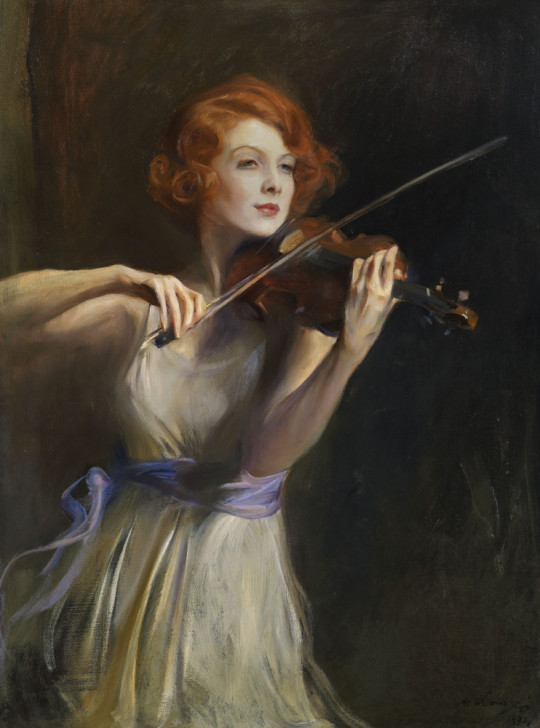
Philip de László - Miss Lisa Minghetti (1933)
Lisa was born Elise Pauline Pollak in Vienna on 17 October 1911, the daughter of Siegfried Pollak, an engineer and bridge builder, and his wife Adele, née Frankenstein. When Lisa was seven her father died of tuberculosis aged 51.
She made her first appearance at the age of twelve at an orchestral concert of the Vienna Symphony Orchestra. She studied the violin at the Vienna Conservatory, going later to Berlin to complete her training with Carl Flesch, after which she moved to London, probably in 1933, in October of which year the present portrait was made. According to her son, in order to leave Germany she had been helped by an Italian diplomat who had befriended her in Berlin. Lisa recalled attending a reception with him at which Hitler was present: as they had passed into the reception area she had seen two members of the Gestapo commenting on the women and overheard one say to the other he could “smell a Jew a mile away.” After she had been presented to Hitler, who kissed her hand, the same man said that Lisa, who was indeed Jewish, was the most beautiful woman present.
She never returned to her native Austria and changed her name officially to Lisa Minghetti in 1935, although earlier references to the present portrait indicate that she was using that name before. When the Germans arrived in Austria, her mother and elder sister emigrated to Buenos Aires but Lisa never saw her mother again. In England she frequently played at major orchestral concerts in London and the provinces. While there she met and married Anton Maaskoff, himself a violin prodigy and 18 years her senior.
Before the outbreak of war they moved to Los Angeles where her only child Maurice was born in 1940. There she performed with the Alan Hancock Ensemble at the University of Southern California, in motion picture studio orchestras, and frequently gave chamber music recitals at home and for benefit concerts. She was considered to be in the first rank of modern women violinists, combining sound musicianship with brilliance of execution. Early on she worked and developed a close relationship with Paul Robeson. Having experienced American racial prejudice with him, later she herself became involved in the civil rights movement. After Anton Maaskoff died in 1951 she married Alfred Lustgarten, a Julliard trained violinist, who adopted her son. His brother was a renowned cellist and both played under Toscanini for a number of years.
Lisa Minghetti died in Los Angeles of skin cancer on 7 October 1961, shortly before her fiftieth birthday. (source)
198 notes
·
View notes
Text
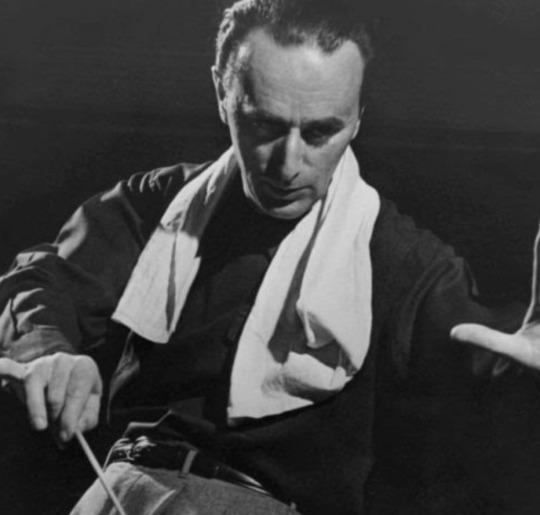
THURSDAY HERO: Herbert Zipper
Herbert Zipper was a conductor and composer who founded a secret orchestra at Dachau, and wrote a song that became an anthem for death camp inmates.
Born in 1904 to an affluent Jewish family in Vienna, Herbert was a musical prodigy who studied at the prestigious Vienna Music Academy with the great composer Richard Strauss. He found employment as a conductor and composer for cabaret shows.
Germany annexed Austria in 1938 and immediately started persecuting Jewish citizens. Herbert was arrested that year and sent by the SS to Dachau, where he became a “horse,” pushing a wheelbarrow loaded with heavy rocks for 12 hours a day. One of the most talented composers in Europe was doing the work of an animal.
Herbert was not the only music man in Dachau. All the Jewish members of the Munich Philharmonic – comprising most of the orchestra – were also incarcerated there. Herbert enlisted the other musicians in an audacious, even insane, plan. They would make instruments and create an orchestra, right there at Dachau.
How could anybody create musical instruments in a concentration camp? They combed the camp for discarded pieces of wood and metal and fashioned eleven primitive yet functional instruments. At least one guard helped the musicians; Herbert requested a piece of wire for a string instrument, and later found it under his pillow.
Herbert’s Dachau orchestra performed concerts for the other inmates every Sunday, in an outhouse. It’s hard to imagine the experience of listening to sublime music in a filthy environment, while knowing they could be all killed for their participation. Herbert said that the concerts were not for entertainment, but rather to bring purpose and even a bit of normalcy back to their lives.
Noted playwright Jura Soyfer, an old friend of Herbert’s from his cabaret days, was also at Dachau. Together they wrote “Dachaulied” (Dachau song), with Herbert composing the haunting music in his head and Jura penning the sad, sardonic lyrics inspired by the concentration camp motto “Work will make you free.” They thought that writing the song would help them maintain some dignity in an atmosphere of constant humiliation and demonization. Herbert deliberately made the song difficult to learn, so that his fellow inmates would have to use all of their concentration and thereby mentally escape from their horrific surroundings. Amazingly, the Nazis never discovered the secret orchestra.
At the end of 1938, Herbert and Jura were transferred to Buchenwald where they taught other inmates the Dachau song. Soon after, Jura died of typhus at age 26, and Herbert lovingly prepared his body for burial. At this time Hitler hadn’t yet began to implement his “Final Solution” to kill all the Jews, which started in 1941. Herbert’s father Emil was in London, desperately trying to get a visa for Herbert and his two brothers to escape Austria. Miraculously, Emil was able to secure his sons’ release from Buchenwald, and they joined him in Paris on March 16, 1939.
During all this time, Herbert’s fiancee, dancer Trudl Dubsky, was working in Manila, in the Philippines. She recommended him for the job of conductor of the Manila Symphony Orchestra, and he was hired, traveling there in September, 1939. Herbert and Trudl were married on October 1. Although it wasn’t a world-class orchestra at the time, Herbert enjoyed working with the Manila Orchestra and under his leadership it improved dramatically. Life was good for Herbert and Trudl until January 1942, when the Japanese army invaded the Philippines and occupied Manila. It was a brutal occupation and once again Herbert was arrested, this time for refusing to conduct the orchestra for Japanese military officers. He was incarcerated and harshly interrogated for four months before being released. For the next three years Herbert and Trudl survived hand-to-mouth, owning no belongings and traveling frequently in search of safe haven in a country at war.
The most difficult period was the Battle of Manila in early 1945. More than once the building where they took shelter was bombed by the Japanese artillery and they escaped with only seconds to spare. In the end of February they were living with hundreds of other displaced people in a seven-story building in Manila that had neither electricity or water. Herbert volunteered to get water every day, a dangerous and difficult undertaking. On the early morning of February 26, 1945, Herbert was on his water run when he saw an opportunity to reach the American front line, and he rushed across a battle field to do it. While there he received a crucial piece of information: the apartment building where he was staying was due to be bombed by the Allies within fifteen minutes! Herbert desperately explained that 800-1000 civilians were inside the building! Due to his pleas, the bombardment was delayed for 45 minutes, giving him just enough time to get back to the building and rescue everyone inside including Trudl.
Until Japan was defeated on September 2, 1945, Herbert worked secretly for the American army under the command of General Douglas MacArthur, transmitting valuable information about Japanese shipping schedules by shortwave radio. When Japan finally surrendered, Herbert organized and conducted a concert of Beethoven’s “Eroica” symphony, a goal he’d set during the darkest hours at Dachau. The concert was performed in a bombed-out church.
Herbert and Trudl immigrated to America in 1946, joining the rest of his family. He co-founded and conducted the Brooklyn Symphony Orchestra, and organized another orchestra especially to give free concerts for public school children. Students called Herbert, who had no children of his own, “Papa Z.” For the rest of his life he volunteered and supported arts education for young people.
Herbert was close friends with poet Langston Hughes and they collaborated on an opera together, “Barrier.” Trudl worked as a ballet tacher. They moved to Chicago in 1953, where Herbert founded the Music Center of the North Shore, and then to Los Angeles, where Herbert directed the School of Performing Arts at USC.
Interviewed by a Los Angeles Times reporter at the end of his life, Herbert said “We have to see the world as it is, but we have to think about what the world could be. That’s what the arts are about.”
Herbert is the subject of a biography, “Dachau Song: The Twentieth Century Odyssey of Herbert Zipper,” and a documentary that was nominated for an Academy Award. His beloved wife Trudl died of lung cancer in 1976. He continued his music for two more decades, conducting his last concert in 1996. Herbert Zipper died in Santa Monica in 1997.
For inspiring concentration camp inmates and inner-city schoolchildren with his music, and for saving hundreds of lives during the Japanese occupation of the Philippines, we honor Herbert Zipper as this week’s Thursday Hero.
Lyrics of Dachau Song:
Barbed wire fraught with death surrounds our world
On which a merciless heaven visits frost and sunburn.
Far from us are all joys, far our home, far the women
When mute we march to work, thousands in the gray dawn.
But we learned the Dachau motto and it made us hard as steel.
Be a man, comrade, remain human comrade
Do good work, pitch in, comrade
Because work, work will make you free!
104 notes
·
View notes
Photo
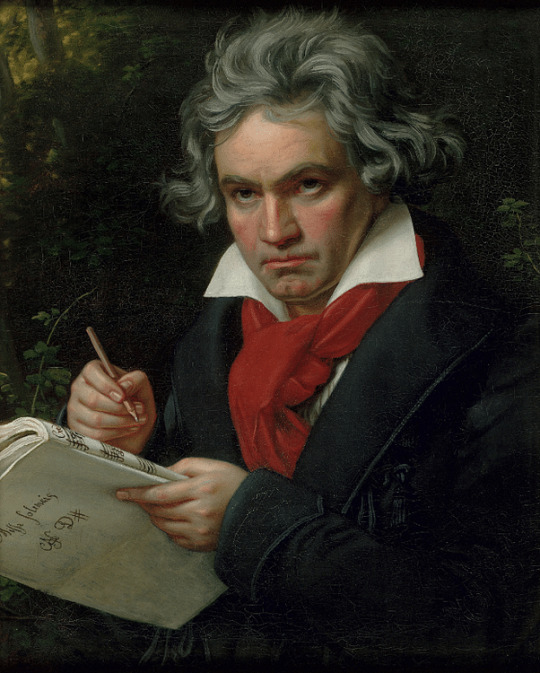
Ludwig van Beethoven
Ludwig van Beethoven (1770-1827) was a German composer of Classical and Romantic music; he is widely regarded as one of the greatest musicians to have ever lived. Most famous for his nine symphonies, piano concertos, piano sonatas, and string quartets, Beethoven was a great innovator and very probably the most influential composer in the history of music.
Early Life
Ludwig van Beethoven was born in Bonn, Germany, on 16 December 1770. His grandfather was the director of music (Kapellmeister) to the Archbishop-Elector of Cologne at Bonn and his father, Johann van Beethoven (c. 1740-1792), worked at the same court as both an instrumentalist and tenor singer. Ludwig's mother was a head cook in the palace. Ludwig had only two other surviving siblings, his younger brothers Caspar Anton Carl (b. 1774) and Nikolaus Johann (b. 1776). Ludwig's father was keen for Ludwig to develop his obvious musical skills but went rather overboard so that his eldest son spent so much time practising on the piano he did not have a lot of time left for all the other things children need to learn to become rounded adults. Johann was violent and an alcoholic, so there was not much that could be done against his wishes.
Ludwig's musical education continued at the Cologne court from 1779 under the tutorship of the organist and composer Christian Neefe (1748-1798). Ludwig impressed, and he was made the assistant court organist in 1781, and the next year, he was appointed the court orchestra's harpsichordist. Already composing his own pieces, Ludwig's work was catalogued by his teacher and a set of keyboard variations was published in 1782. Three of Ludwig's piano sonatas were published in 1783. In a smart move, Ludwig dedicated his sonatas to the Elector, and although he died that year, the next Elector saw fit to keep him on in the court orchestra.
In 1787, Ludwig was all set to go to Vienna where it was arranged he would take lessons from Wolfgang Amadeus Mozart (1756-1791). Although he made it to Vienna, when Ludwig's mother became ill, he was obliged to return home after only two weeks. Unfortunately, Ludwig did not manage to return to Bonn before his mother died, likely of tuberculosis. In 1789, Johann van Beethoven had descended deeper into alcoholism and grief so that Ludwig was obliged to take over responsibility for his family's affairs, which included controlling half of his father's salary. A second opportunity to learn from a master came in 1792 when Ludwig was given leave to study under Joseph Haydn (1732-1809), who was also in Vienna. The music of both Mozart and Haydn influenced Beethoven in the first stage of his career as a composer, as did the guidance of another teacher, Johann Georg Albrechtsberger (1736-1809), particularly regarding counterpoint.
Continue reading...
38 notes
·
View notes
Text




*Liszt. I can't edit polls, so just pretend the typo isn't there
Franz Liszt (1811-1886):
Johann Strauss the Younger (1825-1899):
Gustav Mahler (1860-1911):
Antonín Dvořák (1841-1904):
#bonus round#best habsburg bracket#composers 2: Now they have pictures instead of paintings#and they aren't all Austrian#ignore the typo I just noticed and I can't edit polls
55 notes
·
View notes
Text
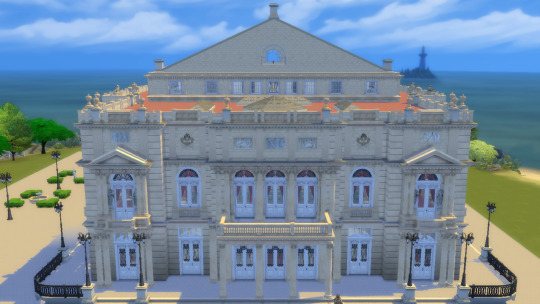
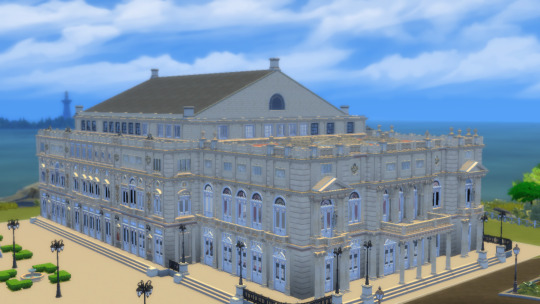


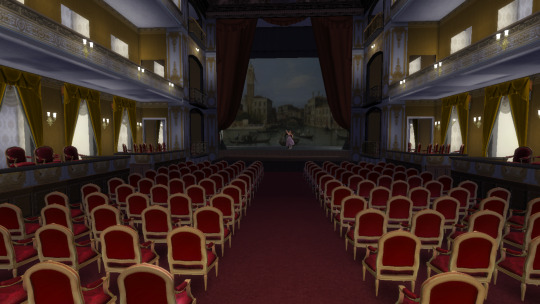
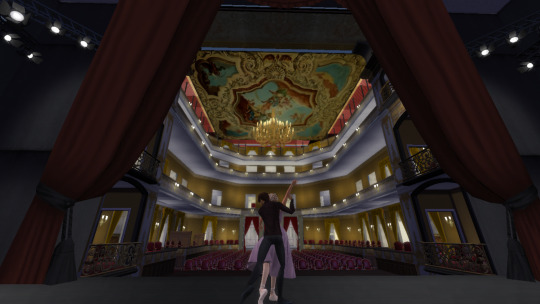
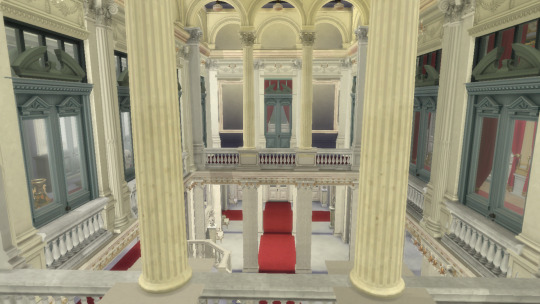
Colon Theatre
The Teatro Colón in Buenos Aires is one of the most important opera houses in the world. Its rich and prestigious history, as well as its exceptional acoustic and architectural conditions, place it on par with theaters such as La Scala in Milan, the Paris Opera, the Vienna State Opera, Covent Garden in London, and the Metropolitan Opera in New York.
In its first location, the Teatro Colón operated from 1857 to 1888 when it was closed for the construction of a new venue. The new theater was inaugurated on May 25, 1908, with a performance of Aida. Initially, the Colón hired foreign companies for its seasons, but starting in 1925, it had its own resident companies - Orchestra, Ballet, and Choir - as well as production workshops. This allowed the theater, by the 1930s, to organize its own seasons funded by the city's budget. Since then, the Teatro Colón has been defined as a seasonal theater or "stagione," capable of fully producing an entire production thanks to the professionalism of its specialized technical staff.
Throughout its history, no significant artist of the 20th century has failed to set foot on its stage. It is enough to mention singers such as Enrico Caruso, Claudia Muzio, Maria Callas, Régine Crespin, Birgit Nilsson, Plácido Domingo, Luciano Pavarotti, and dancers like Vaslav Nijinsky, Margot Fonteyn, Maia Plisetskaya, Rudolf Nureyev, and Mikhail Baryshnikov. Esteemed conductors such as Arturo Toscanini, Herbert von Karajan, Héctor Panizza, and Ferdinand Leitner, among many others, have also graced the theater. It is also common for composers, following the tradition initiated by Richard Strauss, Camille Saint-Saëns, Pietro Mascagni, and Ottorino Respighi, to come to the Teatro Colón to conduct or supervise the premieres of their own works.
Several top-notch maestros have worked consistently here, achieving high artistic goals. They include Erich Kleiber, Fritz Busch, stage directors like Margarita Wallmann or Ernst Poettgen, dance masters like Bronislava Nijinska or Tamara Grigorieva, and choral directors like Romano Gandolfi or Tullio Boni. Not to mention the numerous instrumental soloists, symphony orchestras, and chamber ensembles that have offered unforgettable performances on this stage throughout over a hundred years of sustained activity.
Finally, since 2010, the Teatro Colón has been showcased in a restored building, resplendent in all its original splendor, providing a distinguished setting for its presentations. For all these reasons, the Teatro Colón is a source of pride for Argentine culture and a center of reference for opera, dance, and classical music worldwide.
__________________________________________________________
You will need a 64x64 lot and the usual CC from TheJim, Felixandre, Harrie, Sverinka, SYB, Aggressivekittty, and other marvelous creators!
DOWNLOAD TRAY: https://www.patreon.com/user?u=75230453
(free to play 7/17)

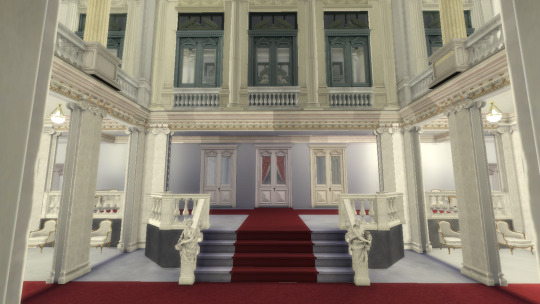
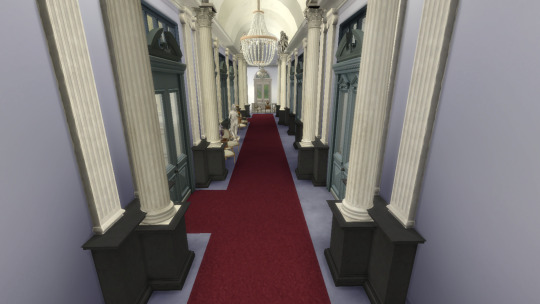
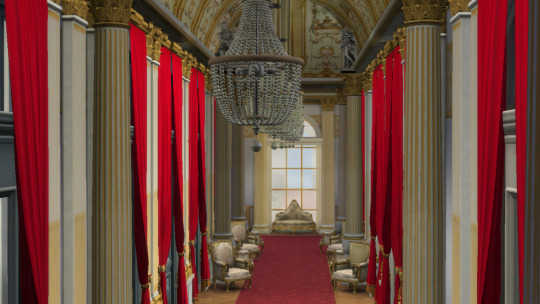


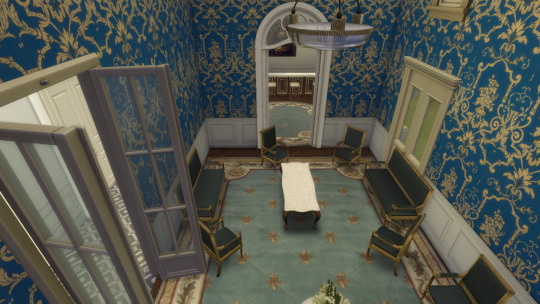
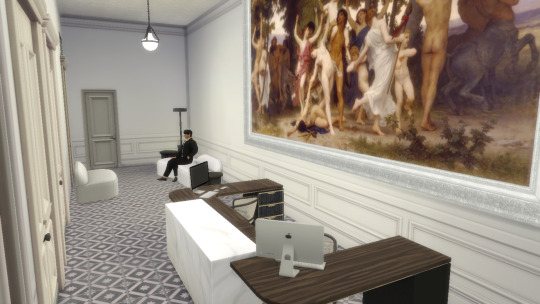




#sims 4 architecture#sims 4 build#sims4palace#sims 4 screenshots#sims4#sims4play#sims 4 historical#sims4building#sims 4 royalty#sims4frencharchitecture
73 notes
·
View notes
Text
Okay Facebook guy gave me an awesome table and free lamp and we talked for a while. So I take it back. Plus I my phone was about to die so I listened to the radio and it showed me this
Which rules. William Dawson rules. And now I have cherries to eat and also my EBT card came in so I’m pleased. Very pleased. Ooh and my boss gave me three fancy hand soaps and a room spray and some trash bags and a giant plant cutting. And my coworker gave me free Hardy’s leftovers. The dentist told me I have two cavities. Which I’ve never had before, but they don’t hurt, and she also asked if I wanted to ‘correct my buck teeth’ and I said fuck no!!! I don’t have to pay for it just yet, or possibly at all which will be amazing and very needed bc I just paid my mortgage, but I really need that night guard. Tomorrow I give plasma bc I’m poor. And then I go to a fancy consignment store to sell my expensive woman cloths. And then the sabbath I rest.
8 notes
·
View notes
Text
1919
The year 1919 was transformative around the world and an exceptionally creative year for composers. On the global stage, troops returned home from World War I; the Treaty of Versailles was signed; and the idea of self-determination took hold. A new era of modernity was born with innovation and consumerism defining the interwar period. 1919 saw new or revised works by many of the finest early 20th��

View On WordPress
#Birgit Nilssen#Bremen Chamber Philharmonic Orchestra#Cello Concerto in E minor#Classical Music#composers#Daniel Harding#Darius Milhaud#Die Frau ohne Schatten#Edward Elgar#Hugo Alfvén#Iceland Symphony Orchestra#Jacqueline du Pré#Jean Sibelius#John Barbirolli#Karl Bohm#Le bœuf sur le toit#London Symphony Orchestra#Music#Niklas Willen#Paul Archibald#Renaud Capuçon#Richard Strauss#Sir Colin Davis#Symphony No 4 in C minor#Vienna State Opera
0 notes
Text
During Mozart's lifetime (1756-1791), there wasn't a single "best" symphony orchestra as we might think of today. However, there were several notable orchestras and musical centers that were highly regarded:
## Mannheim Court Orchestra
The Mannheim Court Orchestra was considered one of the finest in Europe during Mozart's time[1]. It was known for:
- Exceptional discipline and precision
- Innovative playing techniques
- Large size (up to 50 players)
- Introducing new effects like the "Mannheim Rocket"
## Vienna Court Orchestra
Vienna was a major musical center, and its court orchestra was highly respected. Mozart himself worked in Vienna for much of his career.
## Salzburg Court Orchestra
Mozart's hometown orchestra, where he was employed for a time. While not as prestigious as some others, it was still an important ensemble.
## Other Notable Ensembles
- Dresden Court Orchestra
- Berlin Court Orchestra
- Paris Opera Orchestra
It's important to note that orchestras in Mozart's time were generally smaller and less standardized than modern symphony orchestras. The concept of a permanent, large-scale symphony orchestra as we know it today was still developing during this period[1].
Sources
[1] What historical events during Mozarts lifetime effected his music the ... https://www.reddit.com/r/classicalmusic/comments/1cb9ree/what_historical_events_during_mozarts_lifetime/
[2] These are the 20 best symphonies of all time - Classical-Music.com https://www.classical-music.com/features/works/20-greatest-symphonies-all-time
[3] Which is the best Mozart Symphony? : r/classicalmusic - Reddit https://www.reddit.com/r/classicalmusic/comments/bwpv0b/which_is_the_best_mozart_symphony/
[4] The 15 greatest symphonies of all time - Classic FM https://www.classicfm.com/discover-music/best-symphonies-all-time/
[5] Wolfgang Amadeus Mozart - Wikipedia https://en.wikipedia.org/wiki/Wolfgang_Amadeus_Mozart
6 notes
·
View notes
Text

𖦹 New Year ft. Atlanta Symphony Orchestra (Atlanta, GA) | Download
𖦹 Don't You/Stutter (Charlotte, NC) | Download
𖦹 Have Yourself a Merry Little Christmas (Charlotte, NC) | Download
𖦹 Sami/Even Though (Clearwater, FL) | Download
𖦹 I Still Think (Fort Lauderdale, FL) | Download
𖦹 I Want a Hippopotamus for Christmas (Fort Lauderdale, FL) | Download
𖦹 Christmas Medley (Fort Lauderdale, FL) | Download
𖦹 When You Wish Upon A Star (Orlando, FL) | Download
𖦹 A Very Potter Musical Medley (Durham, NC) | Download
𖦹 I Want a Hippopotamus for Christmas (Vienna, VA) | Download
𖦹 Christmas Dance & Medley | Download
𖦹 I Want a Hippopotamus for Christmas (Toronto, ON) | Download
𖦹 Teenage Dream (Detroit, MI) | Download
𖦹 Winter Wonderland (Detroit, MI) | Download
𖦹 I Want a Hippopotamus for Christmas (Madison, WI) | Download
𖦹 Teenage Dream/Have Yourself A Merry Christmas (Madison, WI) | Download
𖦹 To Have a Home (Northfield, OH) | Download
𖦹 Teenage Dream (Northfield, OH) | Download
𖦹 Somewhere In My Memory (Nashville, TN) | Download
𖦹 Medley (Nashville, TN) | Download
AVDC 2023 Masterpost | AVCD 2022 Masterpost | More Audios | ♡
#darren criss#avdc 2023#avdc 2023 audio#let me know if you have problems with the links#please do not repost
20 notes
·
View notes
Text
What one makes music from is still the whole - that is the feeling, thinking, breathing, suffering, human being.
Gustav Mahler
On 26 June 1912, Gustav Mahler's 9th Symphony was given its posthumous premiere in Vienna with Bruno Walter leading the Philharmonic. This profoundly valedictory work - the last Mahler completed before he died - is considered by many Mahler devotees to be his greatest achievement.
Back in the late-nineteenth and early-twentieth centuries, a superstition developed in the classical music world that prophesied the Ninth would be a composer’s last symphony. Arnold Schoenberg summed it up in an eloquent fashion, stating that “he who wants to go beyond it must pass away. It seems as if something might be imparted to us in the Tenth which we ought not yet to know, for which we are not ready. Those who have written a Ninth stood too close to the hereafter.”
To support this, history gives us Beethoven, Schubert, Dvorák, Bruckner, Mahler, and Vaughan Williams, who either died after completing the ninth (Dvorák waited ten years) or never made it through a tenth. We’ll overlook Shostakovich, who not only completed a ninth but went on to write and publish six more. He was Shostakovich, after all. Even death kept a wary, respectful distance.
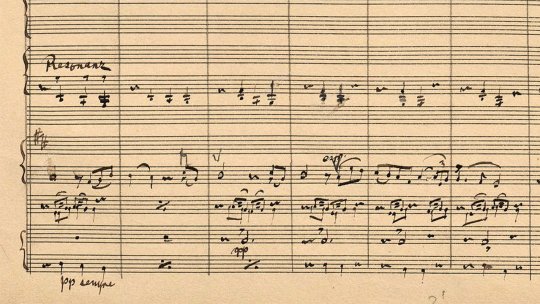
Mahler, some say was superstitious about the matter, tried to sneak around it by calling his ninth symphonic-length work, “Das Lied von der Erde,” a song-cycle rather than a symphony. He bravely undertook his Ninth, rife with its intimations of death and the ache of the human condition, and published it (although he never heard it performed). A year later he began working on his Tenth, but, true to the curse, he died before finishing it. Although he’d sketched out the whole symphony, only the first movement, “Adagio,” and a brief third movement, “Purgatorio,” are complete.
I’m not sure I buy it that this was Mahler’s song song as he saw it. I think that’s just a convenient mythos that enveloped around the traumatic death of one of finest composers ever. Far from going gently into a sort of pre-deathly contemplation, Mahler was full of plans, action, and music in the years when he was writing the Ninth Symphony. He was taking up his post at the Metropolitan Opera in New York, writing Das Lied von der Erde, preparing for the premiere of the Eighth Symphony, and writing, but not completing, what would truly be his last symphony, the Tenth. That’s another danger of thinking about that last page of the Ninth Symphony as the end of Mahler’s compositional life. It’s not: for Mahler, and maybe for us, it should be an insight into life - albeit a life transformed after the intensity of what you’ll have been through after listening to any complete performance of his symphony - rather than a leaving of it.
Daniel Barenboim conducts Mahler's 9th Symphony with the Stasoper Berlin orchestra.
#mahlet#gustav mahler#quote#9th symphony#composer#classical music#music#beauty#aesthetics#sound#jinx#death#legacy#daniel barenboim#arts#culture#german#high culture
37 notes
·
View notes
Text
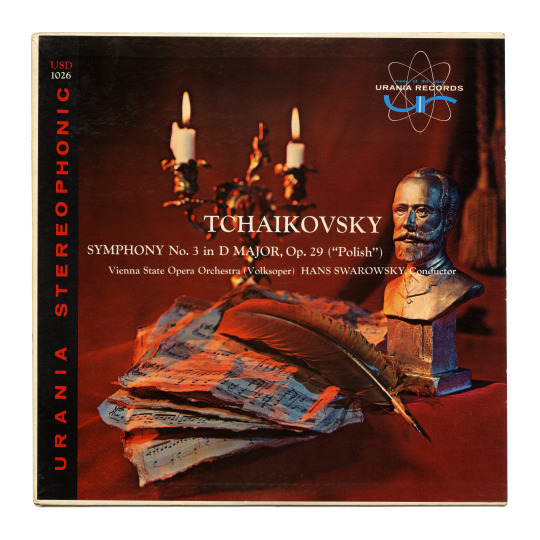
Tchaikovsky: Symphony No. 3 in D Major, Op. 29 (“Polish”)
Vienna State Opera Orchestra
Conducted by Hans Swarowsky
Urania Records/USA
11 notes
·
View notes